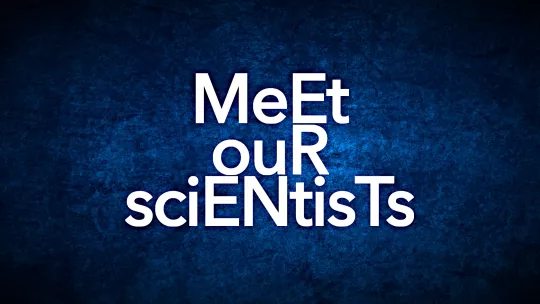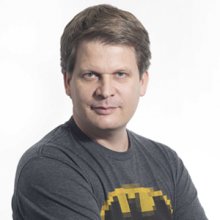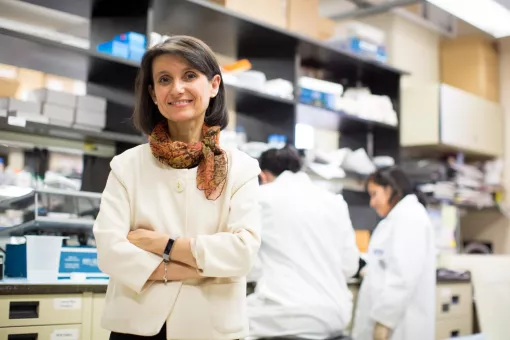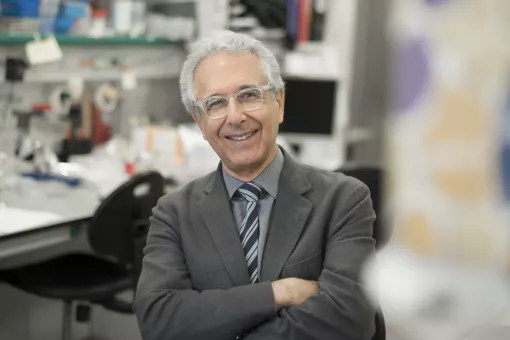Images
The Meet Our Scientists video series introduces Jens Lüders, who studies microtubules—mini-filaments involved in multiple cell processes. The alteration of these structures is associated with diseases such as cancer and Alzheimer’s and with developmental defects.
In the video “Curiosity as a fuel”, Lüders recalls that transcendental discoveries arise from basic research and that such science is driven exclusively by curiosity, without specifically pursuing its applicability or transfer.
The biologist Jens Lüders (Germany, 1969) has headed the Microtubule Organisation Lab at IRB Barcelona since 2008. He leads an international six-person team devoted to elucidating how these minuscule structures—without which cells can’t work—are organised and their function. “Microtubules are essential and fascinating,” says Lüders. They shrink, lengthen, group and bend depending on cell requirements. They are involved in motility, transport and signalling and “they are therefore vital in the crucial process of cell division,” he explains.
His laboratory is obtaining new data on the architecture of a structure called the mitotic spindle, which is formed by an extremely complex network of microtubules. The spindle separates duplicated chromosomes so that each cell receives one complete set. “Alterations in the organisation or function of microtubules are associated with cancer and with defective embryonic development,” he says.
For example, microcephaly—a condition in which the brain is smaller than normal—is a developmental defect. A study done in collaboration with Travis Stracker, a member of the Oncology Programme at IRB Barcelona, revealed how mutations in a specific gene impair microtubule organisation during the division of neuronal stem cells. “That study provided a molecular understanding of a rare disease, Seckel Syndrome, which involves microcephaly,” he explains in the video.
Curiosity driving knowledge
In this regard, Jens Lüders warns about changes in science funding in recent years towards a focus on greater applicability and transfer. “Funding translational research is important, but it should be remembered that great discoveries arise from basic research fuelled by curiosity, not from searching for solutions for a given disease”. This is precisely what happens in his lab. His basic research on the organisation and function of microtubules is producing information on related diseases.
In the lab, apart from studying cell divison, he also uses neurons as model cells because this cell type is particularly dependent on microtubules. This model also offers the opportunity to study neurodegeneration and neuronal regeneration. “In the brains of people with Alzheimer’s disease, defects in the microtubule-based transport of substances contribute to the degeneration of neurons” he explains. With respect to regeneration after a lesion, neurons have to regenerate their nerve extensions “and to do so, microtubules are once again necessary”, he goes on to say.
To end with, Lüders shows three boomerangs. “I made them myself many years ago. I like combining my lab work with handcrafts. They also mean two other things for him: curiosity and the international spirit of science.
Learn about Jens Lüders in this new Meet Our Scientists video “CURIOSITY AS A FUEL”(3.13)
Original version in English, with subtitles in English, Catalan and Spanish
About IRB Barcelona
The Institute for Research in Biomedicine (IRB Barcelona) pursues a society free of disease. To this end, it conducts multidisciplinary research of excellence to cure cancer and other diseases linked to ageing. It establishes technology transfer agreements with the pharmaceutical industry and major hospitals to bring research results closer to society, and organises a range of science outreach activities to engage the public in an open dialogue. IRB Barcelona is an international centre that hosts 400 researchers and more than 30 nationalities. Recognised as a Severo Ochoa Centre of Excellence since 2011, IRB Barcelona is a CERCA centre and member of the Barcelona Institute of Science and Technology (BIST).







